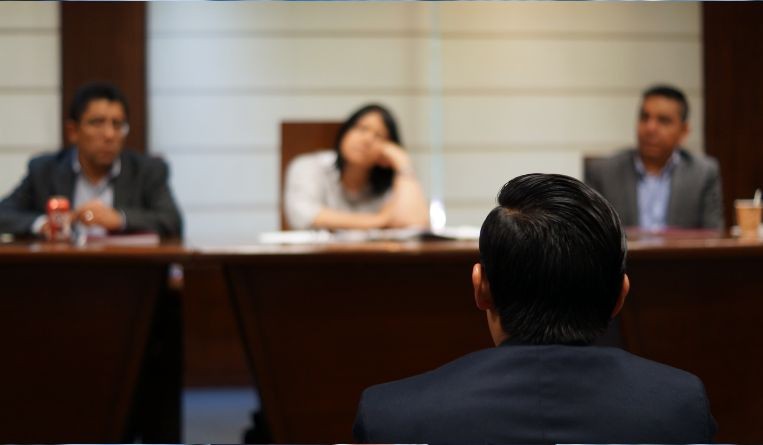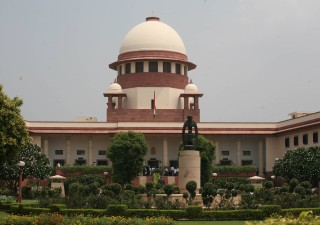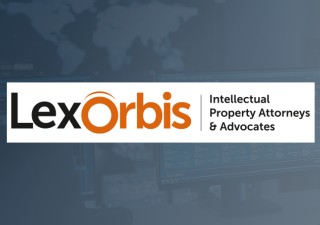The inevitability of natural justice under the Indian patent regime
28 February 2023

The inevitability of natural justice under the Indian patent regime
Natural justice is an inseparable ingredient of procedural fairness and reasonableness. It is ranked as a fundamental requirement for the administration of justice. The principles of natural justice (PNJ) rest upon three limbs. Firstly, nemo judex in causa sua is the ‘rule against bias’ that no person shall be a judge in his/her own cause. It ensures that the authority sitting in hearing and judgment should be impartial and act without bias. Secondly, audi alteram partem is the ‘right to fair hearing’ which puts the obligation on the authority to hear the concerned party or parties as no person should be condemned unheard. As per the extended version of this hearing principle, the opportunity of being heard should be real, adequate, reasonable and effective, and not just an empty formality. Thirdly, the ‘rule of reasoning’ imposes a duty on the competent authority to give reasons in support of the decision.
Time and again, the courts have emphasized that the application of PNJ depends on facts and circumstances of each case as well as the statutory provision, the nature of the right affected and the consequences. The purpose of following the PNJ is the prevention of a miscarriage of justice.
PNJ in patent proceedings
The Supreme Court of India in umpteen cases has reiterated that quasi-judicial and even administrative authorities are subject to the doctrine of procedural fairness as embodied in the classical trinity of the PNJ if acts or decisions of such authorities affect anyone prejudicially. At the Indian Patent Office (IPO), the Controllers of Patents are entrusted with the responsibility of performing certain quasi-judicial functions which include hearing, assessing and deciding patent applications under the provisions of the Patents Act, 1970 and the Patents Rules, 2003. Thus, the requirement of adherence to PNJ is equally applicable to the proceedings and orders of the IPO being a quasi-judicial body.
The Patents Act and Rules are code in themselves and together they prescribe the contents of the natural justice and fair hearing principle at various stages of proceedings. The Controller deals with the technical matters which involve the application of scientific principles along with legal principles. A brief hearing of an hour or so may not suffice as the evaluation of the prior arts and understanding requires extensive readings, appreciations as well as the deduction so as to form an opinion on novelty and inventive step. Thus, the natural justice in the context of the Patents Act is not merely confined to the hearing orally, but also it continues until the filing of the written submissions.
In Hawar Technologies Limited v. Assistant Controller of Patents , the Controller referred to additional prior arts citations during hearing and thereafter refused the application without giving any chance to the applicant for submitting the counter arguments on those documents within the 15 days’ time as stipulated under Rule 28(7); and therefore, the erstwhile IPAB held that such practice was in violation of the fair hearing principles and teachings of patents law.
The apex court, in numerous cases, has reiterated that application of mind and recording of reasoned decision are the basic elements of natural justice. Relying on these stare decisis, recently in Agriboard LLC v. Dy. Controller of Patents (2022/DHC/001206), the Delhi High Court categorically held that the scrupulous adherence to the principle of reasoned order would be required while rejecting patent applications.
Despite the well-settled principle of natural justice being binding on Controllers, judicial decisions have noted considerable departure from the observance of PNJ in some instances.
Procedural deviations, cryptic orders
In Otsuka Pharmaceutical v. Controller of Patents (2022/DHC/004092), the High Court found several infirmities in the Controller’s rejection order – both procedurally and statutorily. It was held that:
-
As per the well-settled practice and precedents, the Controller was required to communicate all outstanding objections to the applicant in the hearing notice. Any objection to prior art must be known to the applicant before the date of the hearing. While refusing the application for lack of inventive step, the Controller re-introduced and relied on those prior arts that were never cited in the hearing notice and that too without affording an opportunity to the applicant to respond to them.
-
The Controller’s order had not dealt with the vital issues, arguments, relevant documents and judgments cited and relied on by the applicant.
-
Bald reasoning for non-patentability would fall in the realm of passing unreasoned order.
-
In sum, the Controller’s action and order were clearly a violation of the natural justice doctrine.
In Jitendra Kohli v. Controller of Patents (2022/DHC/001904), the Controller rejected the application considering the claims as originally filed. The applicant had already amended claims to overcome the objections raised in examination. However, the amended claims had not been taken into account by the Controller at the time of deciding the fate of the application. The High Court held it to be a glaring error and directed the Controller to pass a fresh order after duly considering the amended claims on merits.
Even the reasoned order cannot cure the defect of substantive procedural lapse during proceedings. Such grave procedural errors would be in the teeth of natural justice. In DS Biopharma Limited v. Controller of Patents (2022/DHC/003563), the Controller rejected the application on ground of non-patentability under Section 3(d) as the invention being a new form of a known substance without enhancement in known efficacy. In fact, the Controller’s refusal order identified a specific known substance. However, the impugned order was rendered in the absence of the proper identification of the “known” substance in the hearing notice and that too without affording a proper opportunity to the applicant to respond to the same.
Therefore, the High Court set aside the order and granted a fair opportunity to the applicant to respond on the basis of the identified known substances in the impugned order. It was held that if an objection under Section 3(d) was to be raised, the pre-condition would be the identification of the “known” substance which could have been specifically mentioned in the hearing notice itself. It cannot be left to the applicant to deduce as to what is the known substance and thereafter give efficacy data.
Degree of justification
In Gogoro Inc v. Controller of Patents (2022/DHC/003259), the High Court noted that no elaboration or reasons were given for lack of inventive step in the refusal order. A prompt query arises about how much detailing would be needed for a speaking order. It is not the length of the order or its precise wording that matters. However, it is necessary that the deciding factors and reasoning must be discernible from the order which comes to a conclusion of grant or rejection.
The extent of reasoning to be provided can be linked to the statutory requirement of patent law. Agriboard enunciates that the Controller has to consider three elements while rejecting an invention for lack of inventive step – (i) the invention disclosed in the prior art, (ii) the invention disclosed in the application under consideration, and (iii) the manner in which subject invention would be obvious to a person skilled in the art. Hence, the Controller has to analyze as to what is the existing knowledge and how a person skilled in the art would move from the existing knowledge to the subject invention. Without such an analysis and merely arriving at a bare conclusion that the subject invention lacks inventive step would be contrary to Section 2(1)(ja) of the act itself. Thus, the guidance as to detailing an order is embedded in the required analysis of related provisions of the Patents Act.
Effect of breaching PNJ
The average patent disposal time in India is already on the higher side when compared to best global practices. The contravention of following PNJ makes an order void and the matter is remanded back to the intellectual property office for fresh consideration in such case, which results in an even more prolonged disposal cycle. Besides, optimal compliance with natural justice in the patent process could save the precious judicial time spent in review.
Non-recording of reasons could lead to many infirmities. It may affect the rights of the inventor. The aggrieved party is unable to know the grounds on which the Controller has rejected the application. It also causes impediments in taking adequate and appropriate grounds before the higher court in case of a challenge to Controller’s enigmatic order.
Conclusion
The pillars of natural justice strengthen accountability and transparency as they curb arbitrariness in the decision-making process. A reasoned order reassures that discretion has been exercised by the Controller on relevant material or grounds and by disregarding extraneous considerations. With the dissolution of the appellate layer IPAB, the Controller’s actions and orders would directly come under the scrutiny of High Courts when a challenge is made by the aggrieved party. If natural justice is vitiated, judicial review would act as a check-and-balance mechanism. A series of recent judicial verdicts propounds a progressive stance on natural justice – that boosts the confidence among inventors and industry. Patent experts can also avail themselves of the benefit of these rulings as citations and precedents.









